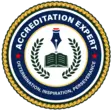Important Agency Information
The West Virginia Higher Education Policy Commission (WVHEPC) regulates postsecondary education in the state. It handles the authorization of various types of educational providers, including public, private, in-state, and out-of-state institutions. The commission also deals with student complaints, surety bonds, tuition refund policies, and records retention.
Types of Educational Providers Authorized
The WVHEPC authorizes the following types of institutions:
- Public, in-state degree-granting institutions
- Public, out-of-state degree-granting institutions
- Private, in-state, non-profit degree-granting institutions
- Private, out-of-state, non-profit degree-granting institutions
- Private, in-state, for-profit degree-granting institutions
- Private, out-of-state, for-profit degree-granting institutions
- Religious institutions
Accreditation is generally required for all institutions, with regional or national accreditation recognized.
Exemptions
Certain institutions or programs may be exempt from state authorization requirements, such as:
- Non-degree granting institutions
- Institutions engaged in collaborative arrangements with in-state public institutions
- Religious organizations offering non-accredited, non-transferable biblical programs













